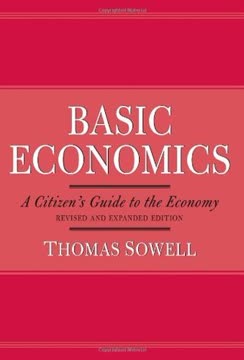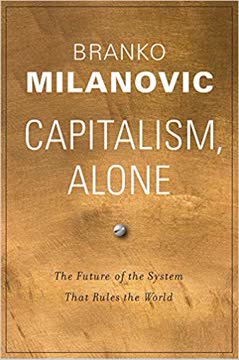Searching...
Top 10 Must-Read Books on Capitalism & Free Trade Myths
Explore the best books challenging free trade myths and capitalism's impact, perfect for economics enthusiasts and critical thinkers.
Book Summaries
The Rise of Disaster Capitalism
Investigative journalist Naomi Klein exposes how crises are exploited to push radical free-market reforms, revealing the darker side of capitalism's global spread.
3 Key Takeaways:
- Economic shock therapy: A tool for radical free-market transformation
- The Chicago School's influence on global economic policies
- Crisis as opportunity: Exploiting disasters for economic reform
John Perkins offers a controversial insider account of how economic manipulation and debt are used to control developing nations, shedding light on hidden global power dynamics.
3 Key Takeaways:
- Economic hit men (EHMs) manipulate global economics for corporate gain
- The US and China employ different EHM strategies to dominate developing nations
- Debt is a powerful tool for controlling countries and exploiting resources
Better Answers to Our Biggest Problems
Nobel laureate Abhijit Banerjee offers evidence-based insights into economic challenges like inequality and trade, advocating for nuanced policies that prioritize human dignity.
3 Key Takeaways:
- Economic policies often ignore real-world complexity and human behavior
- Migration benefits both origin and destination countries, despite common misconceptions
- Free trade can hurt workers, requiring better compensation policies
A Citizen's Guide to the Economy
Thomas Sowell's clear, jargon-free guide explains fundamental economic principles, making it a valuable resource for understanding capitalism and trade in everyday life.
3 Key Takeaways:
- Economics is about scarcity and trade-offs, not just money
- Prices coordinate resource allocation efficiently
- Price controls often have unintended negative consequences
Ha-Joon Chang, a development economist, debunks free-market capitalism myths with historical examples and accessible insights, making it essential for understanding the hidden truths behind global economic policies.
3 Key Takeaways:
- Free markets are a myth: All markets have rules and boundaries
- The washing machine has changed the world more than the internet
- Education alone doesn't make countries rich: Economic organization matters more
Why Aid Is Not Working and How There Is a Better Way for Africa
Economist Dambisa Moyo challenges the effectiveness of foreign aid in Africa, advocating for trade and entrepreneurship as better paths to sustainable development.
3 Key Takeaways:
- Aid perpetuates a cycle of poverty and corruption in Africa
- Dead Aid: How foreign assistance hinders economic growth
- The myth of aid effectiveness in reducing poverty
For the Many, Not the Few
Former US Secretary of Labor Robert Reich critiques myths of free markets and exposes rising inequality, offering solutions to restore fairness and shared prosperity.
3 Key Takeaways:
- The "Free Market" Is a Myth: Government Creates and Enforces Market Rules
- Power Shapes the Market: Those with Influence Determine the Rules
- Property Rights Are Not Natural: They Are Defined by Law and Policy
The Unknown Ideal
Philosopher Ayn Rand defends laissez-faire capitalism as the only moral economic system, providing a provocative perspective on individual rights and government intervention.
3 Key Takeaways:
- Capitalism is the only moral and practical economic system
- Individual rights and property rights are inseparable
- The profit motive drives innovation and progress
The Future of the System That Rules the World
Economist Branko Milanović offers a nuanced analysis of global capitalism's dominance, comparing Western and Chinese models, and exploring inequality and globalization's effects on economic systems.
3 Key Takeaways:
- The rise of global capitalism and its two dominant forms
- Liberal meritocratic capitalism: Increasing inequality and homoploutia
- Political capitalism: China's model of state-led economic growth












